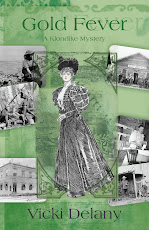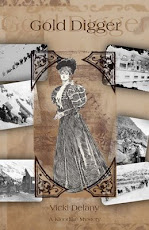Last week I examined what might seem to some a paradox in
the nature of people who were Loyalists: Scots who’d come to America after
Culloden remaining loyal to the British crowd.
Some history books attempt to make it sound as if all the loyalists
were wealthy, elderly conservative (kinda ironic, right?) landowners wanting to
keep their own privilege.
But such was not the case.
People had many reasons for taking one side or the other in
the revolution. Often it was a case of families divided. I’ve read sources that
suggest the Revolution was in fact a Civil War.
Most of the Native tribes were on the side of the British.
They are personified by Molly Brant and her bother Joseph (Thayendanegea) .
Molly was the widow of one Sir William Johnson as well as a prominent leader
in the Mohawk tribes of New York State. (The Mohawks had a strong matrilineal leadership
tradition). http://en.wikipedia.org/wiki/Molly_Brant. Molly was very influential in persuading the Iroquois
to fight along with the British. Molly
Brant is considered a Canadian heroine and has appeared on a stamp.
 Across the Bay of Quinte from Prince Edward County, is the
First Nations Reserve of Tyendenaga. This is Loyalist territory. The Mohawks lost their land when their side
lost the war, moved to Canada, and were given land of their own.
Across the Bay of Quinte from Prince Edward County, is the
First Nations Reserve of Tyendenaga. This is Loyalist territory. The Mohawks lost their land when their side
lost the war, moved to Canada, and were given land of their own.
Joseph
settled further west in the area now known as Brantford.
 Many black people were loyalists also. When the revolution began several of the
colonies declared that any slave who fought with the British would be given their
freedom. Some then went further and declared
that any slave who deserted the Rebels would be given “full protection, freedom, and
land.” http://museum.gov.ns.ca/blackloyalists/who.htm
Many black people were loyalists also. When the revolution began several of the
colonies declared that any slave who fought with the British would be given their
freedom. Some then went further and declared
that any slave who deserted the Rebels would be given “full protection, freedom, and
land.” http://museum.gov.ns.ca/blackloyalists/who.htm
Thousands of black people did so, and were later settled
mostly in Nova Scotia. Some went from
there back to Africa and settled in Freetown, Sierra Leone.
 The story of the black Loyalists is told in
Lawrence Hill’s exceptional novel, The Book of Negros. (http://www.amazon.ca/Book-Negroes-Lawrence-Hill/dp/1554681561/ref=sr_1_1?ie=UTF8&qid=1346256020&sr=8-1)
In the US the book has been retitled Someone
Knows My Name (http://www.amazon.com/Someone-Knows-My-Name-Novel/dp/0393333094/ref=sr_1_1?ie=UTF8&qid=1346255933&sr=8-1&keywords=the+book+of+negros)
The story of the black Loyalists is told in
Lawrence Hill’s exceptional novel, The Book of Negros. (http://www.amazon.ca/Book-Negroes-Lawrence-Hill/dp/1554681561/ref=sr_1_1?ie=UTF8&qid=1346256020&sr=8-1)
In the US the book has been retitled Someone
Knows My Name (http://www.amazon.com/Someone-Knows-My-Name-Novel/dp/0393333094/ref=sr_1_1?ie=UTF8&qid=1346255933&sr=8-1&keywords=the+book+of+negros)
It is worth noting that the slaves of Loyalists were not given their freedom, and when the black Loyalists arrived in Nova Scotia it was to find that many promises to them had not been kept. But, as I have discussed
earlier, slavery was outlawed in Upper Canada in 1791 and throughout the British
Empire in 1834.
The British made use of German mercenaries called
Hessians. Many Hessians (including
deserters) settled in the County after the war rather than return to Germany.













No comments:
Post a Comment